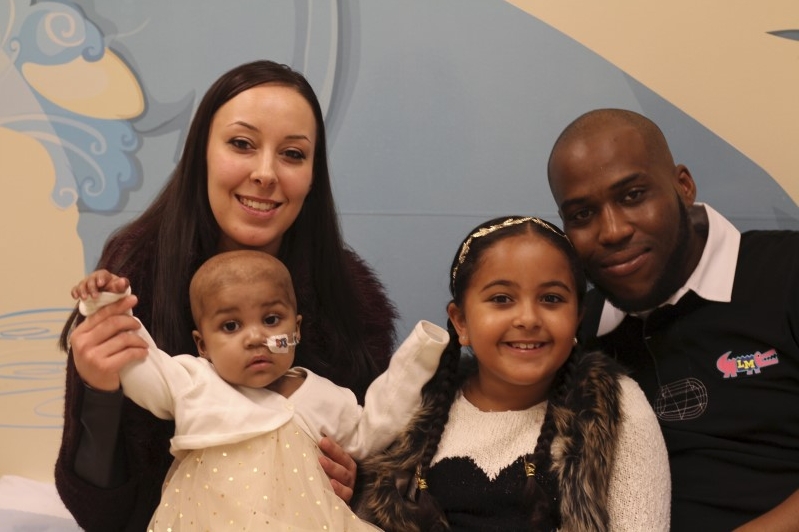
A baby whom doctors thought almost certain to die has been cleared of a previously incurable leukemia in the first human use of an "off-the-shelf" cell therapy from Cellectis that creates designer immune cells.
One-year-old Layla had run out of all other treatment options when doctors at Britain's Great Ormond Street Hospital (GOSH) gave her the highly experimental, genetically edited cells in a tiny 1-milliliter intravenous infusion.
Two months later, she was cancer-free and she is now home from hospital, the doctors said at a briefing about her case in London on Wednesday.
"Her leukemia was so aggressive that such a response is almost a miracle," said Paul Veys, a professor and director of bone marrow transplant at GOSH who led the team treating Layla.
"As this was the first time that the treatment had been used, we didn't know if or when it would work, so we were over the moon when it did."
The gene-edited cell treatment was prepared by scientists at GOSH and University College London (UCL) together with the French biotech firm Cellectis, which is now funding full clinical trials of the therapy due to start next year.
It is designed to work by adding new genes to healthy donated immune cells known as T-cells, which arm them against leukemia.
Using a gene-editing technology called TALEN, which acts as "molecular scissors," specific genes are then cut to make the T-cells behave in two specific ways: Firstly, they are rendered invisible to a powerful leukaemia drug that would usually kill them and secondly they are reprogrammed to only target and fight against leukemia cells.
Other drugmakers including Novartis, Juno Therapeutics and Kite Pharma have tested genetically modified T-cells extracted from an individual patient. However, this is the first time cells from a healthy donor have been used in a process could lead to a ready off-the-shelf supply for use in multiple patients.
Some scientists have questioned Cellectis' approach because of potential problems with patients rejecting foreign cells.
But the French biotech, working with the U.S. giant Pfizer, as well as Novartis believes its method is faster and cheaper than creating single patient-specific gene therapies.
Results from Layla's case were due to be presented at the American Society of Hematology's annual meeting in Orlando on Wednesday.
"This is a landmark in the use of new gene engineering technology and the effects for this child have been staggering," said Waseem Qasim, a professor of Cell and Gene Therapy at UCL and immunologist at GOSH who worked on her medical team.
If the success in this case is sustained and replicated in other patients, he said, the therapy "could represent a huge step forward in treating leukaemia and other cancers."
Matt Kaiser, head of research at the leukemia and lymphoma charity Bloodwise, said that while the concept of editing immune cells to recognize and hunt out leukemia cells is "very exciting," patients and their families should note that the technique is still in the very early stages of development.
"We need to establish whether it can offer a long-term cure, whether there are any side effects and which patients are most likely to benefit from it," he said.







